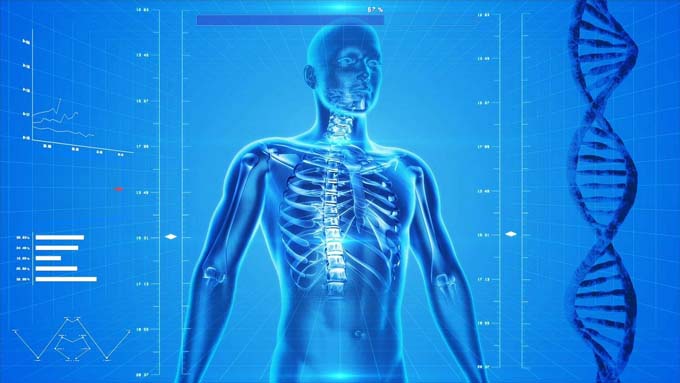How the digitization of healthcare affects us all
The pandemic has ruthlessly exposed weaknesses in the healthcare system. Especially with the digitalization of the health care system, events like COVID-19 could be handled faster and more efficiently in the future, as the author shows with some examples.

By 2026, the healthcare industry is expected to grow by 20 % annually and reach a volume of $662 billion Achieve. The industry is using mobile and internet technologies, among others, to improve disease detection, treatment, and patient engagement. And by 2025, the healthcare services sector is expected to grow at an annual rate of 11,83 % at 35.09 billion USD is forecast. Growth will continue to be driven by increasing insurance demand, technological advancements, and the use of analytics in healthcare (Facts & Factors 2021).
No pioneering role without technological leadership
According to a recent survey by Accenture more and more healthcare organizations have accepted the idea that every business is a digital business. This year has also accelerated exponential change as technology continually reshapes industries and the human experience. As many now begin to envision a post-pandemic reality, the healthcare sector must learn to embrace change and recognize that there is no leadership without technology leadership. The survey shows that 66 % of healthcare executives will be working in the cloud in the next year, and 96 % in the next three years. Petra Jantzer, Managing Director Life Sciences, Accenture Switzerland, says: "Gaining a competitive advantage requires, among other things, re-evaluating and re-engineering the architectural approach and accelerating investments in technologies such as cloud, microservices and APIs. In doing so, it is essential that healthcare C-level management adopts both a people-centric and digital approach across all areas of the organization."
Digitization of healthcare: just the beginning
Today, the potential of cloud technologies is increasingly recognized as a medium for providing data storage, rapid analytics, and computational resources to improve not only the safety, quality, and efficiency of healthcare, but also patient outcomes. And that's just the beginning...
This also applies to research, where, for example, clinical trials are notoriously expensive and even a small speed-up or improvement in the process can make a big difference, and greater transparency of clinical trials could also allow the pharmaceutical industry to move closer to outcome-based pricing. Acceleration and speed affect myriad areas, from genomics (harnessing computing power) to biotechnology (using technology to explore how molecules combine) to storage (finding new ways to research drugs using expanded data storage capacity). High-performance computing (HPC) is critical to health research because it reduces time to results, leading to better care. Since on-premise environments are expensive and difficult to procure, HPC in the cloud provides the scalability and availability needed for these workloads. This is also true for hospitals, where smart technologies are being considered to enable faster intervention for truly patient-centered care.
At its core, it's about data and using technology to collect it and interpret it in the most strategic and efficient way. The past year has shown us how important the digitization of healthcare is.
Quickly informed about side effects thanks to data analysis
COVID-19 impacted every person and community around the world, and we learned many important lessons, especially about what we didn't have in our health technology systems. Data was moving so fast that we simply were not able to collect real-time information from patients, providers, medical professionals, and researchers to control the spread.
That's why companies from all sectors have agreed to work with the public sector, non-governmental organizations and the private sector to improve outcomes and opportunities for sick and vulnerable people around the world. Technology providers, among others, are also working to help government agencies and the medical community better understand and combat coronavirus.
During the pandemic, for example, Oracle supported the U.S. National Institutes of Health and the Centers for Disease Control in the United States by developing a suite of public health management applications and a national database of electronic health records used in the country's clinical trials and vaccine efforts. More than 500,000 people volunteered to participate in a COVID-19 clinical trial through the health management system. Oracle also developed the v-safe application, which allows any American receiving a vaccination to easily report side effects, such as injection site pain or headaches, through their smartphone or computer. The system now contains tens of millions of records and allows the medical community to use the anonymized data to understand the impact of the vaccine on different populations, such as on pregnant womenfor which no data were previously available (this population was usually not part of the clinical trials).
The public health benefits of these systems are felt far beyond the United States. Working closely with the Tony Blair Institute for Global Change, these systems have been deployed in Africa to support large-scale vaccination programmes against yellow fever, HPV and COVID-19.
Using data to stay ahead of the spread
While there was a moment when the world seemed to have a handle on COVID-19, the emergence of other infectious variants of the virus, including Delta and My, threatens to slow the global recovery and challenge current vaccine immunity. To help governments and public health agencies identify and respond to these variants more quickly, Oxford University and Oracle have developed a global pathogen analysis system that combines Oxford's scalable pathogen tracking platform with the power of the cloud. This new tool is a good example of the power of technology, enabling public health specialists in research organisations, public health services and diagnostics companies around the world to better understand infectious diseases, starting with coronavirus.
Researchers use the system to upload pathogen data and obtain comprehensive results quickly, even within minutes. With user permission, the results are shared in a secure environment with participating laboratories around the world. Pooling and comparing the data provides invaluable insight into emerging variants even before they are officially classified as a concern because they tend to spread or reduce the effectiveness of vaccines.
Access to this kind of real-time, real-world, anonymized data is the future of medicine. Whether it's a pandemic or an ongoing health crisis from tuberculosis to HPV, the further digitization of health data and the ability to securely share and analyze that data on a global scale promises to enable many untapped medical breakthroughs.
Author:
Thierry Buecheler is Head of Key Cloud Business, EMEA at Oracle Industry, Innovation and Insight EMEA.









